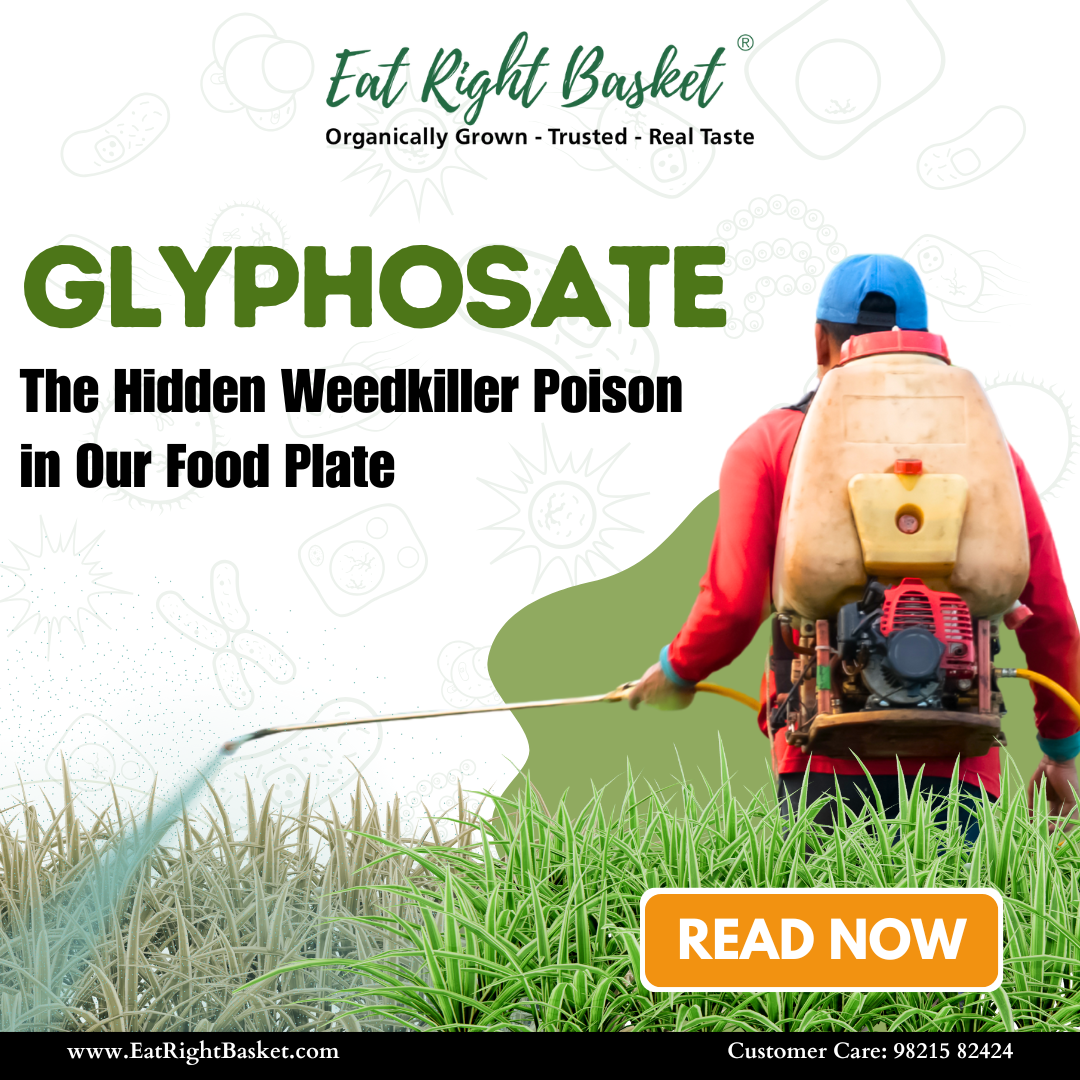Glyphosate is the world’s most widely used weedkiller, sprayed across millions of acres every year. Designed to destroy unwanted weeds and grass so that crops thrive, it is marketed as a farmer’s ally. But is it really that simple?The truth is darker. Glyphosate is one of the most controversial chemicals in agriculture, linked to cancer, environmental damage, and biodiversity loss. So much so that it is either banned or restricted in several countries worldwide. What is Glyphosate? Chemically, Glyphosate is a broad-spectrum, systemic herbicide and crop desiccant. Its scientific name is N-(phosphonomethyl)glycine, and it belongs to the organophosphorus compound family (phosphonates). It works by choking unwanted plants to death, ensuring only the main crop survives. While this may sound efficient, the impact goes far beyond weeds, it contaminates soil, water, air, and the food we eat. Why is Glyphosate Dangerous? The World Health Organization’s cancer agency (IARC) declared in 2015 that Glyphosate is a probable human carcinogen. Since then, debate has raged globally about its risks and regulation. Health Risks of Glyphosate Exposure: Environmental Impact: The Use in India: The Ground Reality In India, this widely used weedkiller was approved only for tea crops and non-crop areas (like pathways and fields). States like Assam, West Bengal, Tamil Nadu and Kerala, known for tea plantations, were its primary users. However, government data paints a different picture: Today, around 35 brands of such kinds of pesticides are available in India, with names like Allkill, Azad, and Gladiator, a reflection of their destructive power. Government Restrictions (2022): Despite this, this chemical remains widely available, with products like Roundup, Dhanuka Noweed Glyphosate 41% SL, and Jaikisan’s Glyphos still being sold. Where is Glyphosate Banned Globally? Many countries restrict such pesticides to protect farmers, consumers and the environment. What Can We Do as Consumers? We may not be able to control government policies, but we can control what goes on our plates. Why Organic is the Answer? The simplest way to ban such toxic chemicals from your life is to choose organic food. When farmers and consumers commit to organic, harmful chemicals automatically disappear from our farms, our soil, and our food. At Eat Right Basket, we stand for food that nourishes without poisoning. Our certified organic fruits, vegetables, staples, and snacks are 100% chemical-free, ensuring you and your family eat safe, clean, and natural. References

